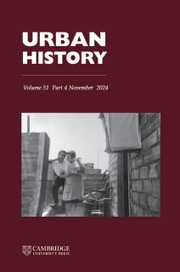What difference do cities make? How the urban – and place more generally – have contributed to historical processes is one of the questions that continually confront urban historians. Should towns and cities be regarded as no more than the backdrop against which events and developments – industrialization, social conflict, war – are played out? Or do cities and urbanism more widely possess agency? Do they (as many urbanists claim) have an active part to play in shaping how historical processes eventuate, why things happened in this way here and that way there? If so, what precisely is the urban variable; how can we define and estimate it?
These are old questions of course, ones that absorbed many of the best-known writers on the history of cities from Max Weber to Eric Mumford and H.J. Dyos. But they are also questions that each generation, it would seem, have to confront and answer in their own way. To this end, Bert de Munck and Simon Gunn invited a number of speakers to reflect on the idea of urban agency, of how, historically, cities can be defined and their effects understood. Not all the speakers were urbanists or historians, but they each had something distinctive to say about how we might conceptualize or rethink urban agency. Their responses were given at a roundtable at the European Urban History Conference in Lisbon in September 2014. We reproduce them here, following the normal editorial process of review and revision, in the hope that they will be of interest to the wide number of historians and other scholars engaged in studying the urban past.



